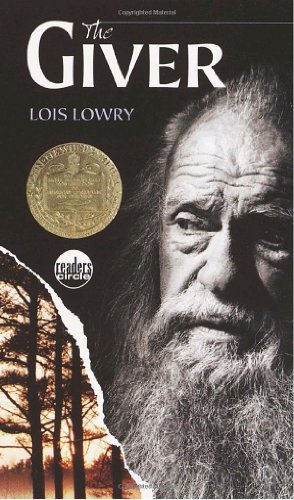All Nonfiction
- Bullying
- Books
- Academic
- Author Interviews
- Celebrity interviews
- College Articles
- College Essays
- Educator of the Year
- Heroes
- Interviews
- Memoir
- Personal Experience
- Sports
- Travel & Culture
All Opinions
- Bullying
- Current Events / Politics
- Discrimination
- Drugs / Alcohol / Smoking
- Entertainment / Celebrities
- Environment
- Love / Relationships
- Movies / Music / TV
- Pop Culture / Trends
- School / College
- Social Issues / Civics
- Spirituality / Religion
- Sports / Hobbies
All Hot Topics
- Bullying
- Community Service
- Environment
- Health
- Letters to the Editor
- Pride & Prejudice
- What Matters
- Back
Summer Guide
- Program Links
- Program Reviews
- Back
College Guide
- College Links
- College Reviews
- College Essays
- College Articles
- Back
The Giver by Lois Lowry
When reading “The Giver” by Lois Lowry, I was unable to enjoy the novel because of many different flaws that I encountered. Lowry forgets to explain various plot holes that, if the reader thinks a little bit, are easily seen by everyone who tries to enjoy the book.
“The Giver” is a novel that talks about the problems of a society that is supposed to be a “utopia” through the eyes of the main character, Jonas. At first read, there seems to be no reason for anyone to be unhappy in the community in Jonas lives in, but it soon because obvious that there is a serious lack of freedom and that the citizens don’t even know the idea of making choices. The plot could’ve been amazing, but there were many things she fails to account for. I will cover them in this critique.
If the community has access to technology such as pills for all kinds of pain, why are they so ignorant to the ways of the human mind? For example, Asher, Jonas’s best friend, went into silence during a time he should be learning how to talk (he was around three years old) because he was beaten for mixing up words, such as “smack” and “snack”. A child going mute indicates obvious emotional trauma and if they have the knowledge to make up pills for every pain imaginable as well as to control sexual desire, they should be aware of the problems such beatings can cause the development of a child.
Throughout the story, the light color of Jonas’s eyes, as well as The Giver and Gabriel’s eyes, are seen as a sign that someone has the ability to be The Receiver. Yet, during the Ceremony of Twelve, the leader of the community says they’ve been watching him since he’s shown signs of acting different than other kids. Why would they need to watch him carefully if having light eyes is obviously a sign of being the Receiver? This is never explained.
Furthermore, if the Receiver's memories are supposed to help shape the future of the community, then why do they think differently than everyone else, possessing knowledge about a society before all the “Sameness”, while the community continues to control everyone with too many rules? This makes no sense. By the rule of “Sameness”, people like the Giver and Jonas would be obsolete; therefore neither of them has a place in the community of Sameness that Lowry tries to create. Some might argue that the Giver and Jonas and the standard of living the Giver maintains—he lives more luxuriously than the rest of the community and he has many books—is supposed to signal that “love, hate, and knowledge are things that cannot be escaped by people”. This could be true if Lowry created the Giver with some sort of purpose other than just existing. He has "great honor", but not "great power". He holds memories from the past so that the rest of the community doesn't see them, but if the memories are to be kept away from everyone else, they should just "release" the Giver, and lose the memories in the process.
If the elders have scientific knowledge and they don't care about relationships in the society, they don't need the Giver because relationships survive off of memories. If they need the experience of something negative to "help" (the term is used loosely here) the community, they should just record the memories in a document and make it someone’s job to protect it. For example, when the Giver says the memory of starvation prevented the community from increasing the amount of children that are born, it looks like the memories are doing more to keep the community in the same place it is, not make it better. And the passing of suffering from one person to another is just overdramatic and unnecessary. In a society where nothing extra exists and everyone has what they need without overindulging, an individual like that can't exist.
Also, there were problems with the overall idea of the book. How can there be a sameness community if Jonas possibly reaches a new society at the end of the novel? I know that the houses and lights he sees is probably a metaphor for freedom and new thought or it could just be a memory from the Giver, but if the place he sees below the hill at the end really does exist, how did the people there end up in a society without Sameness? None if it is explained.
Also, in reference to her writing style, her use of plain language is boring. Although it is needed because of the lack of emotion and color in the community, even as Jonas matures, the writing doesn't. Just because it is targeted towards teens and middle schoolers, doesn't mean the writing should be so simple and boring throughout the whole book.
Similar Articles
JOIN THE DISCUSSION
This article has 0 comments.

